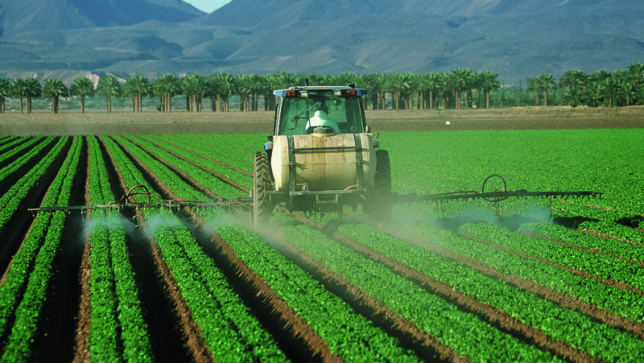Rising use of glyphosate, the world’s most heavily applied herbicide, is putting the population at risk of significant health problems, according to a report released today by the environmental health watchdog group As You Sow.

Glyphosate is applied frequently to the most popular crops in the U.S., including wheat, oats, and beans, and has been found in many common food products including Quaker Oats and many breads. The report raises red flags about the health and environmental impacts of current glyphosate use, problems with the regulation of pesticides, and how large chemical companies are promoting the use of glyphosate.
Available online, the new report, titled Roundup Revealed: Glyphosate in Our Food System, consolidates years of glyphosate research and cuts through the controversy over glyphosate. One key finding: glyphosate is increasingly being sprayed on crops just before harvest to dry out (“desiccate”) the plants so harvest operations can be sped up; this practice results in greater residues of glyphosate in foods.
The report’s analysis finds that in 2015, nearly a third of U.S. wheat was treated with glyphosate, likely pre-harvest in most cases. A recent biomonitoring study revealed that 93% of Americans tested had glyphosate in their bodies.
THE GLYPHOSATE BOX
Glyphosate Residue Free Certification
Glyphosate in Popular American Foods
Austin Wilson, As You Sow’s Environmental Health Program Manager and report lead author said, “Glyphosate is the world’s most used herbicide. The World Health Organization has listed it as a probable carcinogen, putting a huge segment of the world’s food system at risk. At the request of pesticide companies, U.S. regulators continue to raise the allowable limits for glyphosate residue in food, leaving the population exposed to potential health harms. The widespread use of glyphosate is also creating environmental problems, including herbicide-resistant weeds and reduced biodiversity.”
As You Sow has brought this issue to the attention of major companies, including Kellogg, a leader in sustainable agriculture, who responded by agreeing to survey its supply chain about pre-harvest use of glyphosate.
While the legal and political battles over glyphosate continue to emerge and develop, pesticide companies are staking their future on increased use of toxic pesticides.


















